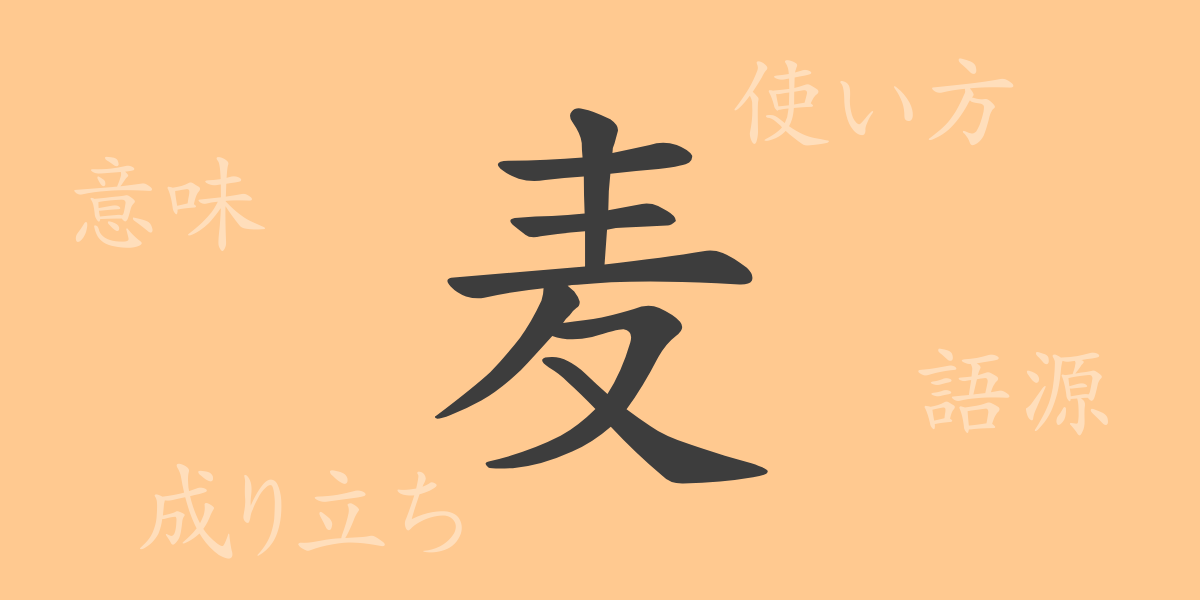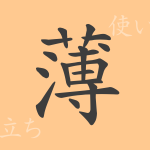Grains have always held great importance, and their value in Japanese culinary culture is immeasurable. Among these, *mugi* (麦), or “barley,” has been cherished as a fundamental food ingredient that supports Japanese agriculture and dining tables from ancient times to the present. In this article, we will focus on this essential grain, *mugi* (麦), exploring its origins, meanings, usage, pronunciation, stroke count, radicals, and even idioms and proverbs that incorporate *mugi*. Let’s delve into the allure of this precious crop.
Origins of 麦 (*mugi*)
The origins of the character *mugi* (麦) date back to ancient China. The kanji for “mugi” has long been used to represent grains, with its shape depicting the split ends of a grain stalk. This imagery symbolically captures the appearance of ripened grains, giving rise to the character *mugi* (麦). In Japan, *mugi* has been cultivated alongside rice since ancient times, serving not only as a staple food but also holding cultural significance.
Meanings and Usage of 麦 (*mugi*)
The kanji *mugi* (麦) primarily refers to grains, including wheat, barley, rye, and others. Each type of *mugi* is a key ingredient in a wide range of foods and beverages, such as bread, beer, and *mugicha* (麦茶, barley tea). Additionally, *mugi* appears in figurative expressions and in compound words paired with other kanji, showcasing its versatile usage.
Pronunciation, Stroke Count, and Radicals of 麦 (*mugi*)
As a commonly recognized kanji in Japanese, *mugi* (麦) has distinct readings and writing features:
- Pronunciation: The *on’yomi* (音読み, Chinese reading) is “baku,” while the *kun’yomi* (訓読み, native Japanese reading) is “mugi.”
- Stroke Count: *Mugi* (麦) consists of 7 strokes.
- Radical: The radical is “麦部” (*bakubu*), where the character itself serves as the radical.
Idioms, Proverbs, and Phrases Involving 麦 (*mugi*)
Japanese language features numerous idioms, proverbs, and phrases incorporating *mugi* (麦). For instance, “麦秋” (*bakushū*) refers to the barley harvest season, “麦茶” (*mugicha*) is a staple summer beverage, and “麦と兵隊” (*mugi to heitai*) metaphorically refers to commoners and soldiers. These expressions reflect how deeply *mugi* is ingrained in Japanese life and culture.
Conclusion on 麦 (*mugi*)
Throughout history, *mugi* (麦) has supported Japan’s culinary traditions and profoundly influenced Japanese language expressions. We’ve explored the significance of this small grain and its diverse uses in daily life, from bread to barley tea. By deepening our understanding of *mugi*, we can appreciate its value even more. Moving forward, *mugi* will continue to enrich our dining experiences and play a vital role in our lives.

























